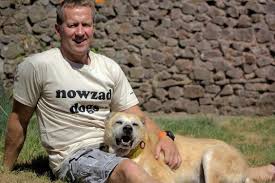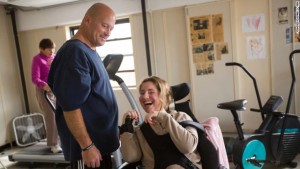November 2013 — When Kakenya Ntaiya, now 35, was 5, she was engaged. When she was 14, she was subjected to the ceremonial tradition of her Masai village in Kenya of female genital mutilation. However, it came with a cost, and not just for Ntaiya; she made a deal with her father that she would undergo the mutilation if he would allow her to finish high school, on threat of running away. She knew that after these ceremonies, many girls are promptly married off, their dreams and aspirations snuffed out. She had a different plan for herself. Her father agreed to the bargain, and Ntaiya went on to excel in her studies, earning a scholarship to study at at university in the United States. Her village held a fundraiser to raise the funds for her airfare, and in exchange for the kindness, Ntaiya promised to return to help her village someday.
Approximately 140 girls and women around the world have been affected by child marriage and genital mutilation. While both atrocities are now illegal in Kenya, reports show that they still occur, especially in rural villages like the one Ntaiya grew up in. Child marriage and genital mutilation go hand in hand, both contributing to the oppression and inequalities women suffer every day around the world.
Ten years passed as Ntaiya excelled at University and went on to work for the United Nations, but she never forgot the vow she made to her village. Ntaiya had dreamed of being a teacher since she was small, and her mother always encouraged her dream, a dream that could lead Ntaiya to a better life. Ntaiya wished to bring that dream to life while improving the lives of girls in her village and the surrounding area whose dreams may not have otherwise been permitted to come to fruition.
Ntaiya returned to Kenya in 2009 and started up the first elementary school for girls in her village. She called it the Kenkenya Center for Excellence (KCE). Today, more than 150 girls are being educated and empowered at her school. Just five years old, the school is now among the top-ranked in the district. The school began as a day school, but because of the dangers the girls faced by walking to and from school every day, Ntaiya turned it into a boarding school. This not only keeps them safe, but ensures that their free time is not spent performing domestic chores. Students receive uniforms as well as three meals a day. The school hosts a wide variety of extracurricular activities such as sports teams and debate club, and boasts much individual attention. The girls are inspired to dream big. Some want to become teachers, pilots, doctors, and lawyers. Ntaiya said, “I came back so girls don’t have to negotiate like I did to achieve their dreams…That’s why I wake up every morning.”
It took years for Ntaiya to rally support for her cause and to persuade the village elders to donate the land necessary for the school. The school is public, so it receives some funding from the government. Families who can pay often pay using money, or in good such as maize or beans. Ntaiya assists those families who cannot pay. Ntaiya has one main stipulation: students who attend KCE will not be married off or undergo genital mutilation. Ntaiya was pleased at their agreement and support because that is just the change she was hoping to instill.
Ntaiya’s nonprofit also runs leadership education camps for all sixth-grade girls in the village to teach them about teen pregnancy, female genital mutilation, child marriage, and HIV/AIDS. The girls are informed of all of their rights.
In years to come, Ntaiya hopes to expand the school for younger students as well. She hopes that one day, the school will be the model of girls’ education in Africa, the enabler and empowerment of all girls’ dreams.
Source: CNN (http://www.cnn.com/2013/03/14/world/africa/cnnheroes-ntaiya-girls-school/index.html)

Here, Kekenya Ntaiya stands before her school and her students at the Kekenya Center for Excellence in Enoosaen, Kenya.
The link to the website of the Kekenya Center for Excellence is: http://www.kakenyasdream.org/










